
To learn more about the environmental impact of holiday shopping and strategies for mindful approaches, read our article on how you can practice conscious consumerism.
The holiday season is just around the corner, and I have to admit, it feels a little different for me this time around. Don’t get me wrong, winter is still my favorite holiday season. But as I’ve grown and become more aware of my spending habits (#adulting), I’ve been reflecting more on what the holidays truly mean.
Kevin and I have been in deep discussions about our financial health, spending, and the environment. In our last post, we talked about the detrimental effects of Black Friday; how one day of the year can cause such an increase in carbon emissions, pollution, and overall damage to the planet.
As we reflect on what we can do as individuals, we realized that there are so many other ways to make gift-giving around the holidays more meaningful. Each choice we make as consumers can have a profound impact on the environment, so we need to be mindful and make more conscious decisions, especially around the holidays.
This year, we want to add an extra layer of meaning to our holiday shopping by supporting sustainable and eco-friendly brands. In this article, we’re going to show you how you can join us! We’ll share 10 sustainable brands that we’ve personally used and love, and hopefully, this will get you to rethink your holiday gift shopping too.
What are Sustainable Brands
Before we dive into sustainable brands, let’s establish a clear definition of what they actually are. Sustainable brands aren’t just labels; they’re brands that adopt eco-friendly practices throughout their business. Through all aspects of the company, from marketing and design to production and manufacturing, sustainable brands create products that respect and protect the planet.
By supporting sustainable brands, we contribute to a reduced environmental impact and the promotion of ethical manufacturing. This isn’t just about making a purchase; it’s about making a difference.
How to Identify Sustainable Brands
Now that we know what sustainable brands are, the next step is identifying them. Finding truly sustainable brands can be difficult, especially with so many marketing tactics out there. Identifying sustainable brands involves examining key factors, such as the materials they use, their ethical practices, and their transparency in business operations.
Incorporating eco-friendly practices into business operations can significantly minimize the environmental and social impact. For example, using minimal or zero-waste packaging, opting for recyclable or compostable materials, and prioritizing ethical sourcing are all ways that sustainable brands achieve this mission.
I know, this sounds like a lot when you just want to get a new pair of jeans!
Luckily, you don’t have to do the work. You just have to find the right tools and resources to help you find these brands. Now, there are so many apps and websites out there that can help us on this journey towards eco-conscious consumerism!
To make your search for responsible brands easier, take a look at these directories:
Eco-Friendly Materials
Eco-friendly materials are at the heart of sustainable brands. Materials like organic cotton, recycled fabrics, and low-impact dyes are some of the go-to items that these brands use. When you see clothing or products that are made from these materials, it’s very likely that you’re looking at a sustainable brand.
Certifications like Fair Trade and GOTS (Global Organic Textile Standard) are like the blue ribbon for sustainable brands. These certifications confirms that these brands do in fact use eco-friendly materials and ethical practices. This also helps us to determine what brands to trust and who is actually committed to environmental responsibility.
Ethical Practices
You see this a lot and you’re probably wondering, “What exactly are ethical practices?”
Ethical practices are a crucial component of sustainable brands. These practices encompass fair wages, safe working conditions, and adherence to labor laws. Basically ensuring ethical and fair treatment of those they employ.
Brands that prioritize these ethical practices are actively trying to better the lives of workers and supporting the preservation of human rights. Certifications and organizations like the Fair Labor Association monitor and promote ethical production, so keep an eye out for these endorsements when you’re looking into sustainable brands.
Transparency and Accountability
Transparency is the hallmark of a sustainable brand.
Think about a company or organization that you trust, one that is a champion for a cause you believe in. What is it about those organizations that influenced your trust in them? When researching these organizations, what were you able to find?
Brands that openly share information about their sourcing, manufacturing, and environmental impact are brands that we can trust. As consumers, we have the right to know what goes into the products we buy and the environmental footprint they carry. Many brands provide sustainability reports and undergo third-party audits to demonstrate accountability. These reports and audits offer insight into the brand’s dedication to eco-conscious practices.
How to Identify Greenwashing
You’ve probably heard of this term before, or maybe you’ve seen it in action but didn’t know the verbiage for it – Greenwashing.
In our last post, we mentioned this deceptive marketing practice that misrepresents a brand as more environmentally friendly than it actually is. Some brands might label some of their products as “eco-friendly” or “sustainable” without any clear evidence to support this other than their marketing strategy.
Just because a few products are made of eco-friendly materials does not mean that the brand itself qualifies as a sustainable brand.
Greenwashing is selective. Maybe a brand is advertising a certain product as eco-friendly when that product only makes up less than 5% of its production. Perhaps the product is sustainable, but the packaging isn’t. Greenwashing can be as subtle as a misleading packaging choice all the way to fossil fuel companies touting themselves as being eco-champions.
H&M, Zara, and Uniqlo are among the companies that were caught greenwashing over the years. Fast fashion brands have a habit of advertising their green initiatives widely, despite it being a tiny part of their operations.
As a responsible consumer, you can learn to recognize these strategies and avoid falling for greenwashing tactics.
This does take more work and effort on our part as consumers, but in the end, it feels good to know that we’re being responsible and doing our part to help limit the damage caused to the environment.
Here are some tips for how you can spot greenwashing:
- Do your own research
- Look for inconsistencies in branding and claims
- Determine if the brand’s actions are aligned with their environmental statements
- Find tangible evidence to support their eco-friendly claims
- Cross-reference their claims with trusted sources
- Look for third-party certifications or labels backing the brand’s environmental commitments
- Beware of buzzwords such as natural, eco-friendly, sustainable, and non-toxic
It sounds daunting at first, but you’ve gotten this far because a small part of you wishes to make a difference. And you can! Once you start reframing the way you think about this, it gets easier. This practice does require you to be a little more skeptical of marketing tactics. You might have to do your own research before purchasing from a brand. But in the end, it’ll be worth it.
Our Favorite Sustainable Brands
Finally, the list you’ve been waiting for!
Kevin and I have taken some time out to think about some of our favorite, sustainable brands that you can shop from this holiday season and beyond. There’s a wide range so hopefully, you’ll find something you like or something you can give. The best part is that all of these products are guaranteed to last, the quality is amazing!
*Although Beyond Meat won’t last too long, the quality is still amazing!
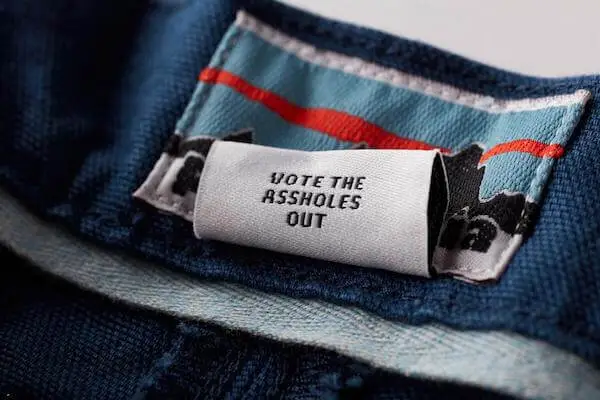
Patagonia is one of my favorite outdoor clothing brands! Their commitment to using recycled materials, fair trade practices, and environmental activism makes them more than a brand – they’re a movement for mindful living.
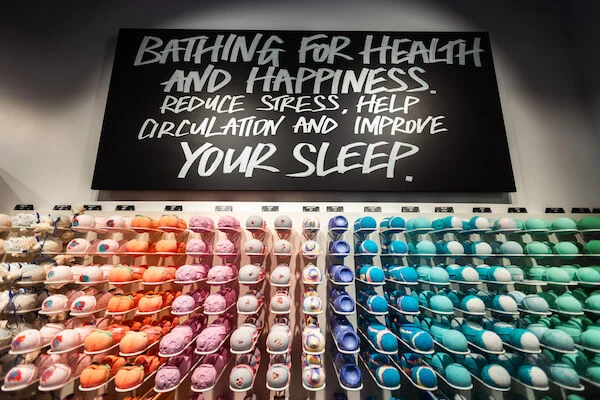
I only get bath bombs from Lush. Not only do they feel amazing, but knowing that this brand is a crusader for cruelty-free, handmade cosmetics makes me feel more at ease in the tub. With a dedication to reducing packaging waste, transparent ingredient sourcing, and fighting against animal testing, Lush delivers products that are as good for the planet as it is for your skin.
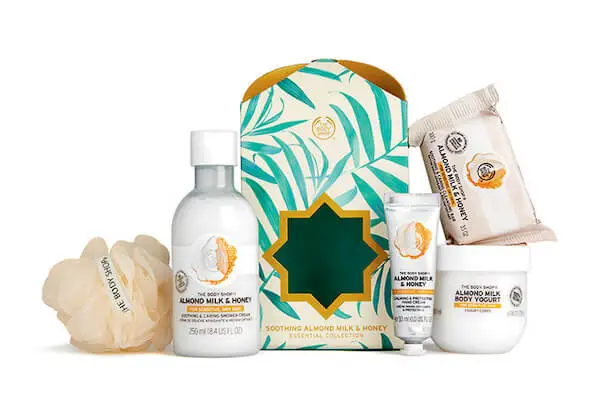
The Body Shop is more than a beauty brand. They embrace cruelty-free practices, promote fair trade, and source their materials ethically while empowering communities worldwide. Plus, their products smell great and feel even better.

This is one of my favorite home decor brands! But Pottery Barn goes beyond stylish home decor; it’s a pioneer in sustainable furnishings. With a commitment to responsibly sourced materials and eco-friendly manufacturing, it’s nice to know that my cozy corner at home not only looks good but does good for the environment too.
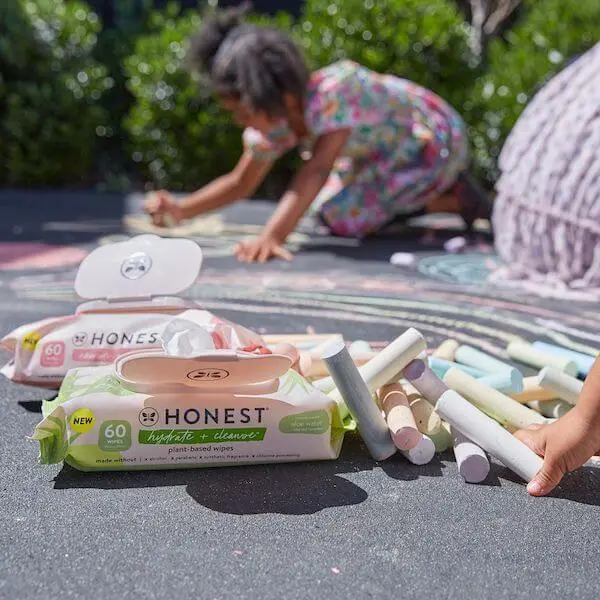
I don’t use their baby products specifically but will definitely when the time comes. I will say that I absolutely love their wipes and sanitizing products. My mama friends and family also have high praise for The Honest Company, especially when it comes to the sensitive care line. From diapers to household essentials, their commitment to non-toxic ingredients and eco-friendly materials ensures a clean, safe, and sustainable start for your family.

I have two bags from Dagne Dover, and I have to admit, they have changed the way I move. I LOVE my work bag; it looks great, is durable, and literally holds everything. Crafted with recycled materials and designed for longevity, these bags are a great combination of fashion and eco-consciousness.
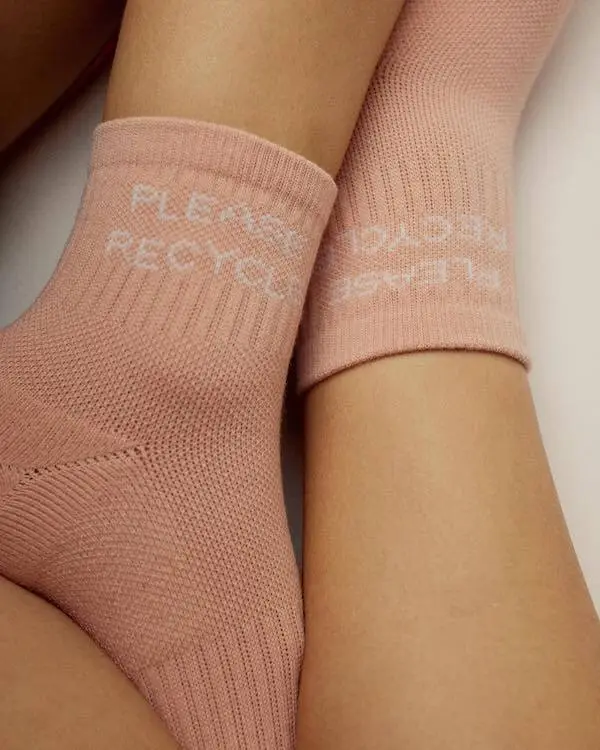
Activewear gets a green makeover with Girlfriend Collective. I love that the material is so soft, comfortable, and long-lasting! From leggings to sports bras, their chic designs are made from recycled plastic bottles, turning fashion waste into sustainable activewear. Looks good and feels good, inside and out.

My friend got me my first Cotopaxi backpack years ago, and I’ve used it on every hiking, camping, and adventuring trip. It has never failed to carry all the things I need through the great outdoors! Committed to ethical sourcing and creating durable products, 94% of their products include repurposed, recycled, or responsible materials. Even better, each purchase supports global poverty alleviation initiatives.
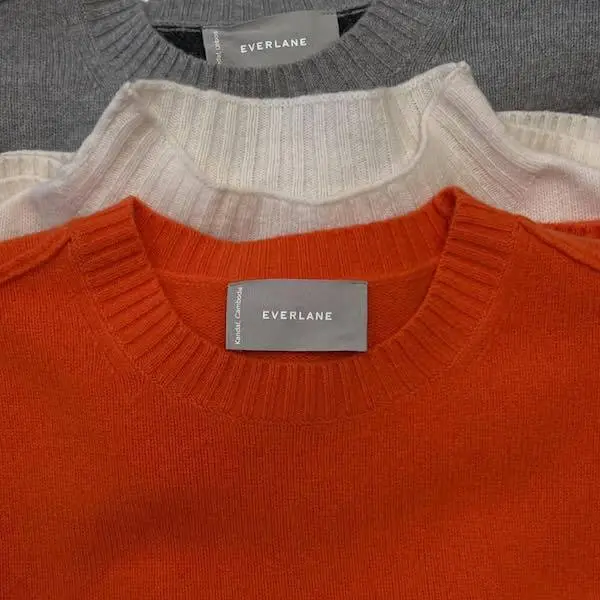
Everlane is your go-to for chic essentials with a conscience. They are a little pricey but the materials are of such high quality, it makes the price tag worth it. With a commitment to radical transparency, ethical factories, and sustainable materials, they redefine fashion as a force for good.

All I can say is YUMMY! Kevin loves Beyond Meat and was the one who introduced me to it. This brand revolutionizes your plate by crafting delicious plant-based alternatives, and I’m telling you, it’s delicious. Reducing environmental footprint, their products are truly a tasty testament to sustainable and cruelty-free dining.
Final Thoughts
I hope this article has helped you to rethink the way you shop. I used to buy products from SHEIN, Fashion Nova, and ASOS, but in the last few years, I have definitely made a more conscious effort in selecting brands. Kevin’s shopping habits tend to be better than mine. Since he’s a digital nomad and is moving around frequently, he tries not to accumulate too many things; a true minimalist.
In thinking about how we want to live our lives and the impact we want to make while we’re here, we both realized that supporting sustainable brands is not just a choice; it’s a commitment to a more eco-conscious and ethical way of living.
We have the power to drive sustainability. By making informed choices, demanding transparency, and avoiding greenwashing, we can collectively create a positive impact on the environment and influence the practices of the brands we support. In the spirit of the holiday season, let’s choose not only to give meaningful gifts but also to make a meaningful difference.

